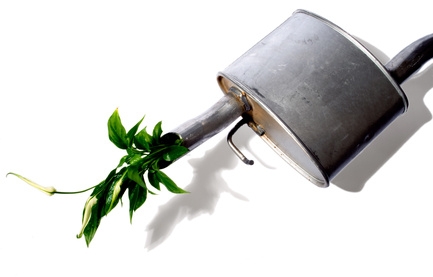
With an increased focus on reducing our impact on the environment and stricter emissions testing, reducing your car´s exhaust fumes is more important than ever. Cars release harmful toxins into the atmosphere through the exhaust, so the less exhaust fumes your car produces, the less damage it is causing the planet. With a few steps and some basic maintenance, you can greatly reduce the amount of exhaust fumes your car is releasing and do your part to protect the environment.
Change the oil and the oil filter. The oil is the lifeblood of your car and having old, dirty oil means your car is burning excess amounts of it. When excess amounts of oil is burned, more exhaust fumes are released into the air. The oil filter is responsible for cleaning the oil that passes through the engine. Having a new oil filter ensures that only clean oil is flowing through the engine and less exhaust emissions are released.
Change the air filter. Internal combustion engines function on a mixture of air and fuel. The air filter is responsible for cleaning the air that enters the engine. If the air filter is dirty, air does not flow freely through the engine and causes the car to use more gasoline to keep it powered. The more gasoline burned, the more exhaust fumes are released.
Change the PCV (positive crankcase ventilation) valve. The PCV valve is used to control emissions in the car´s engine. An old PCV valve can become dirty and clogged with old oil which prevents it from properly reducing emissions. Replacing the PCV valve can help you reduce your car´s exhaust fumes.
Change the fuel filter. The fuel filter cleans the gasoline that is needed to power your car´s engine. Over time, fuel filters become clogged with dirt and debris and can no longer properly clean the fuel passing through the engine. This causes the engine to burn more fuel than is necessary and increases the amount of exhaust gases released.
Take your car for a tune-up. Excess amounts of exhaust emissions can be caused by a wide variety of reasons that only a trained mechanic can diagnose.